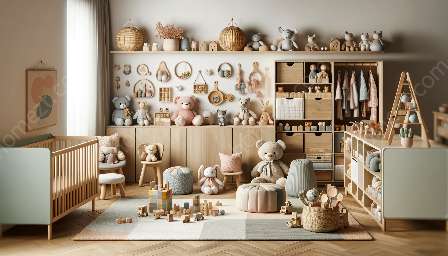Emotional development is a crucial aspect of a child's growth, encompassing their ability to recognize and manage their own emotions, understand the emotions of others, and establish healthy relationships. During early childhood, play becomes a vital avenue for children to explore and develop their emotional capabilities. This article delves into the role of emotional development toys in fostering these skills, providing guidance on toy selection and effective incorporation into nurseries and playrooms.
Understanding Emotional Development
Emotional development involves a child's ability to identify, express, and regulate their feelings. It also encompasses their capacity to empathize with others, manage conflicts, and build positive social connections. These skills lay the foundation for a child's overall well-being and future success in navigating relationships and societal interactions.
The Role of Toys in Emotional Development
Toys play an instrumental role in facilitating emotional development. They offer children opportunities to engage in pretend play, express complex emotions, and explore various social scenarios. Through play, children learn to understand and manage their feelings, develop empathy, practice conflict resolution, and strengthen their communication skills. Toys designed to encourage emotional development provide a supportive environment for children to process their experiences, understand the perspectives of others, and build essential social and emotional competencies.
Types of Toys for Emotional Development
Several types of toys are particularly effective in promoting emotional development:
- Role-Playing Toys: These include dollhouses, play kitchens, and dress-up costumes, allowing children to enact different roles and explore diverse emotional dynamics in a safe and imaginative setting.
- Emotion-Recognition Games: Board games and puzzles that involve identifying and expressing emotions help children develop their emotional vocabulary and understanding of complex feelings.
- Soft Toys and Comfort Items: Stuffed animals and security blankets provide comfort and teach children about empathy, nurturing, and self-soothing techniques.
- Art and Craft Supplies: Creative materials like paints, clay, and drawing tools serve as mediums for children to express their emotions and connect with their inner feelings through art.
Toy Selection: Fostering Emotional Development
When choosing toys to support emotional development, it's essential to consider the following factors:
- Diversity in Representation: Select toys that reflect a wide range of emotions, experiences, and cultural backgrounds to encourage inclusivity and empathy.
- Social Interaction Opportunities: Choose toys that facilitate cooperative play and sharing, allowing children to engage in social interactions and practice communication and negotiation skills.
- Durability and Safety: Opt for well-constructed, age-appropriate toys that meet safety standards, ensuring that they can withstand extended and varied play.
- Open-Ended Play Potential: Prioritize toys that enable open-ended play, offering children the freedom to use their imaginations and emotions to guide their play experiences.
Incorporating Emotional Development Toys in Nurseries and Playrooms
Integrating emotional development toys into nurseries and playrooms creates enriching environments for children to explore and cultivate their emotional abilities. Consider the following tips for effective incorporation:
- Designated Play Areas: Create distinct play zones within the nursery or playroom, with each area featuring toys that target specific emotional development skills such as empathy, conflict resolution, or self-expression.
- Rotating Toy Selection: Regularly rotate the emotional development toys available to children, introducing new themes, characters, and scenarios to encourage fresh exploration and engagement.
- Facilitated Play Groups: Arrange opportunities for guided play sessions with emotional development toys, where children can interact, share, and communicate their emotions while receiving supportive guidance from caregivers or educators.
Cultivating Emotional Intelligence Through Play
Emotional development toys serve as valuable tools in nurturing essential social and emotional competencies in children. By carefully selecting toys that align with the principles of emotional development and integrating them thoughtfully into nursery and playroom settings, caregivers and educators can create nurturing environments that support children's emotional growth and well-being.



